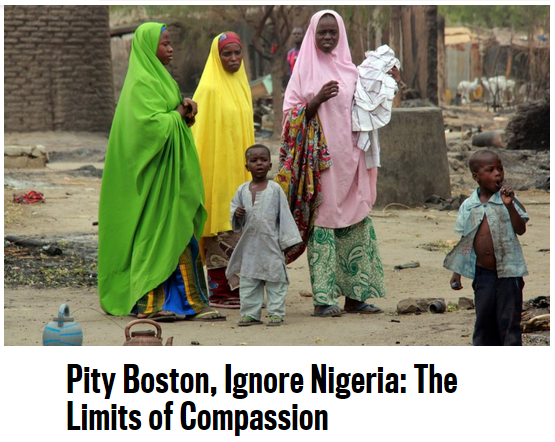On the events in Paris, Rod Dreher and the Benedict Option
Sunday, November 15th, 2015[ by Charles Cameron — contrasting the ideal with “this pragmatical, preposterous pig of a world” ]
.
A few weeks back I read a piece by Rod Dreher around the concept of a Benedict Option recently, and liked it well enough that it sits in a special folder I have labeled 3 Major Papers, waiting for me to find the time to write it up in detail, offering my own suggested buttresses and side chapels to Dreher’s overall quasi-monastic structure. The Option itself derives from a paragraph in Alasdair MacIntyre‘s book, After Virtue:
What matters at this stage is the construction of local forms of community within which civility and the intellectual and moral life can be sustained through the new dark ages which are already upon us. And if the tradition of the virtues was able to survive the horrors of the last dark ages, we are not entirely without grounds for hope. This time however the barbarians are not waiting beyond the frontiers? they have already been governing us for quite some time. And it is our lack of consciousness of this that constitutes part of our predicament. We are waiting not for a Godot, but for another — doubtless very different — St Benedict.
**
Here’s my koan, as of yesterday, hearing the news of the multiple attacks in Paris and following Twitter to peer and pierce as best I could through the immediate fog towards the kernel of the matter. It takes the form of two tweets, the second in response to the first:
So what of your refugee scheme, #AngelaMerkel? You will see what happened in Paris tonight multiplied massively all over Germany.
— Rod Dreher (@roddreher) November 14, 2015
and:
Lord, when did we see You hungry or thirsty or a stranger or naked or sick or in prison, & did not minister to You? https://t.co/4xtsMIUSyu
— Laura Seay (@texasinafrica) November 14, 2015
**
My immediate reaction, dismayed at Dreher’s tweet, is to agree with Laura Seay‘s response. And I’m far from alone in this, as a glance at some other responses to Dreher easily confirms:
@roddreher If this ideology is part of the #BenedictOption, I want nothing of it.
— Benjamin Brandenburg (@BenBrandenburg) November 14, 2015
and:
@roddreher I’m quite certain this is not in the Benedictine spirit.
— C (@surefootedllama) November 14, 2015
**
So that’s the koan, the paradox — and that’s the way I lean on it.
Except that Dreher in a piece titled Refugees & the Paris Attacks, wrote again, today, and made some points that tip me towards the other side of the koan / coin:
Hesepe, a village of 2,500 that comprises one district of the small town of Bramsche in the state of Lower Saxony, is now hosting some 4,000 asylumseekers, making it a symbol of Germany’s refugee crisis. Locals are still showing a great willingness to help, but the sheer number of refugees is testing them. The German states have reported some 409,000 new arrivals between Sept. 5 and Oct. 15 — more than ever before in a comparable time period — though it remains unclear how many of those include people who have been registered twice.
Six weeks after Chancellor Angela Merkel’s historic decision to open Germany’s borders, there is a shortage of basic supplies in many places in this prosperous nation. Cots, portable housing containers and chemical toilets are largely sold out. There is a shortage of German teachers, social workers and administrative judges. Authorities in many towns are worried about the approaching winter, because thousands of asylum-seekers are still sleeping in tents.
The contrast between the ideal and the real couldn’t be greater: God’s in his heaven — and the devil is in the details.
**
As for that “pragmatical, preposterous pig of a world” — WB Yeats in his poem, Blood and the Moon is describing Bishop Berkeley:
that proved all things a dream,
That this pragmatical, preposterous pig of a world, its farrow that so solid seem,
Must vanish on the instant if the mind but change its theme…
It amuses me that when I look the phrase “pragmatical pig” up to make sure I quote it accurately, Google wants to correct it to “pragmatic pig” — doesn’t that massive AI know its Yeats well enough at least to have caught on to his marvelous catch-phrase?
**
More on Rod Dreher and the Benedict Option as time permits and place allows..





